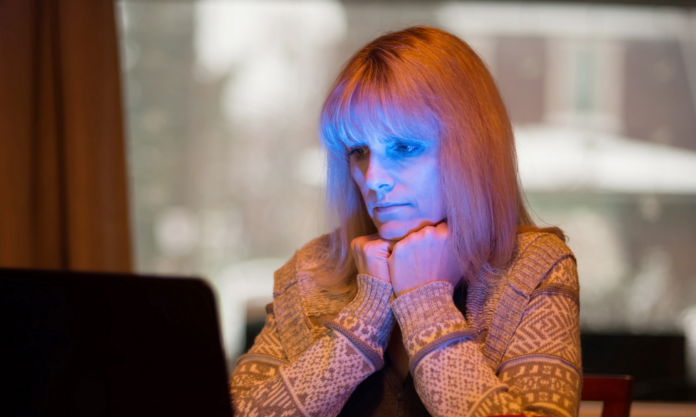
CULLMAN, Ala. – Winter is can be a stressful and depressing time for some people. The decreased sunlight, colder temperatures, dreary landscapes, holiday stress and increased time staying indoors all contribute to seasonal depression, and the isolation necessary this year to prevent the spread of COVID-19 has led to people experiencing this who have never done so before. To help identify the symptoms of seasonal depression (or the “holiday blues”) and possible ways of treating or mitigating the effects, The Tribune reached out to WellStone Behavioral Health Chief Operating Officer Chris Van Dyke.
What are the common symptoms of seasonal depression?
“Some people experience a sort of depressed mood – just don’t really enjoy things that they normally would enjoy, don’t want to go out and do things and would just rather sit at home. There’s a lot of feelings of tiredness and wanting to stay in bed all the time. Those things are pretty common. Then on the extreme end, you have people who start feeling hopeless and have thoughts of death or suicide.”
For people who have never experienced this before but are experiencing it now, what are some ways of handling the effects?
“There’s a few things I would recommend. Some people think of it as kind of cliche, but gratitude really has a lot of power to help us get out of these sorts of things. You can create your own kind of gratitude journal, or you can go online and find templates of how to document what you’re grateful for. My suggestion is to just write down, every day, one thing that you’re grateful for or who you’re grateful for and why. That really helps you think about what you can be grateful for, and the more we can be grateful for what we do have, the better it helps us pull out of that depression.
“Another suggestion would be to express that gratitude to people – both to people that we see all the time and people we don’t see very often. That could be making a phone call to someone you haven’t seen in a long time and telling them why you’re grateful for them or writing a letter to that person, and it’s really important to make sure you do that with the people you see every day. Sometimes we take those people for granted very quickly.
“So gratitude’s a big recommendation, and the other one would be exercise. I know it’s hard this time of year, especially when it’s cold, but anything you can do to exercise – even if it’s just stretching and breathing exercises in your home – can really help motivate you a bit and give you a little energy to pull out of that.”
What about people who experience this chronically?
“If somebody has been experiencing this chronically, they usually have a way that they’ve treated it in the past, and hopefully it’s a healthy way. Some people have special lights that they use for light therapy, and that is effective. Some people need to get on medication to help them through the winter months. Some people might see a therapist. There’s a lot of different ways, and I would just recommend that people stay away from the unhealthy ways of coping like drinking or recreational drug use. Those might feel better in the moment, but they’re going to make it worse over time.”
What should people do if they feel a loved one is experiencing seasonal depression?
“The most important thing is to not ignore it. That’s our natural tendency, to ignore it because we feel uncomfortable or because we might offend the person, but it’s better just to talk about it. Even just saying something like, ‘Here’s what I see: you seem to be depressed, you seem to be withdrawn,’ anything to get some conversation going.”
For people who may be unfamiliar, what services does WellStone offer?
“WellStone is a public nonprofit mental health center, so we treat a wide variety of problems for all ages. We do outpatient counseling, we have psychiatry, we have outreach services which go out into the community and see people in their homes who have serious mental illness. We also do substance abuse treatment services. If people are interested in services, want to set up an appointment or just want more information, we have a special Access to Care line that they can call at 256-255-1020. They can talk to somebody there and get more information or schedule an appointment to get an assessment.”
Any further comments?
“If someone was feeling like they were thinking about suicide or had some other mental health crisis, we have people they can call 24/7 at 256-734-4688. During the day, we’ll talk to them on the phone and at night, that’ll route to our on-call workers.”
Copyright 2020 Humble Roots, LLC. All Rights Reserved.


















